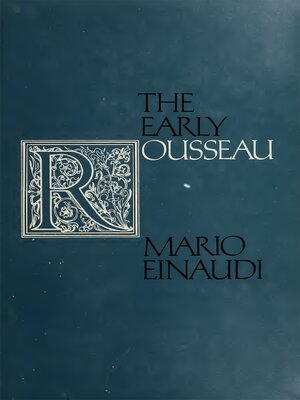
Sign up to save your library
With an OverDrive account, you can save your favorite libraries for at-a-glance information about availability. Find out more about OverDrive accounts.
Find this title in Libby, the library reading app by OverDrive.



Search for a digital library with this title
Title found at these libraries:
| Loading... |
The early writings of Jean-Jacques Rousseau were dismissed by his contemporaries as the paradoxes of a madman. Later critics, weighing the early works against such classics as the Confessions and Emile, were convinced that the views of the young Rousseau could not be reconciled with those of his more famous period. In this stimulating book Professor Einaudi argues that the denigrators of Rousseau's early work were wrong: the early and later views can be reconciled. Indeed, full understanding of the mature Rousseau can be gained only through appreciation of the writings completed between 1737 and 1756.
In developing his argument, the author refers not only to such well-known early works as the Discourse on the Arts and Sciences and the Discourse on Inequality, but also to the less familiar writings of the same period—the essays on political economy and the state of war, the letter to Voltaire on the Lisbon earthquake, the fragments on history and education, the Discourse on Wealth, and Rousseau's replies to his critics.
Rousseau's reputation has steadily grown until he is today regarded by many as the most important thinker of the eighteenth century. His views on a variety of topics—man and society, private and public life, economics and government, war and peace—seem astonishingly relevant to the problems of the twentieth century, and for this reason he is now read with a thoroughness and sympathy that were seldom accorded him in his lifetime. This major contribution to the current Rousseau revival is the first full-length study in English to take into account the insights of recent European scholars, such as Starobinski, Derathé, and Vossler.






